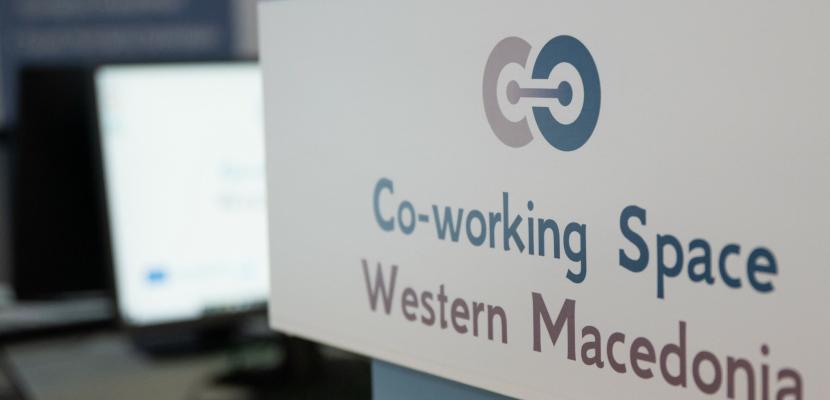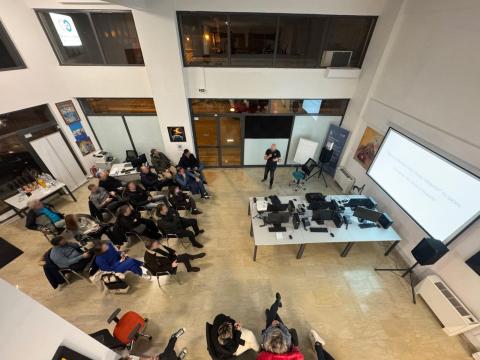
Kozani Co-Working Space: A Sharing Economy Model for Regional Innovation and Entrepreneurship

About this good practice
Western Macedonia faces significant economic challenges following the decline of lignite mining, which served as the backbone of the region's economy, leading to unemployment and brain drain.
The Kozani Co-Working Space emerged as a strategic response, creating a vibrant hub for innovation and entrepreneurship.
The facility offers comprehensive resources, including shared workspaces, high-speed internet, modern meeting rooms, professional training, and mentorship programs. Reservations for workspace access can be made easily through the Co-Working Space’s official website, ensuring a user-friendly process for new members. It serves a diverse group of users—startups, freelancers, remote workers, and young entrepreneurs—fostering a collaborative ecosystem where new business ideas can flourish. Free seminars ,workshops on critical topics such as digital transformation and artificial intelligence are organized to enhance participants' digital skills.
The Co-Working Space operates based on the principles of the sharing economy, offering access to high-quality infrastructure and services without the burden of ownership costs, while promoting resource efficiency, collaboration, and community building.
Managed by ICAP Advisory and funded by the JTF alongside national resources, it connects businesses with training opportunities, funding information, and development support.
Expert opinion
Resources needed
Funded by the EU Just Transition Fund and national sources. Resources included renovation of facilities, installation of office infrastructure, and employment of about 11–50 staff for management, mentorship, and administration.Total budget is 725.806,00 €
Evidence of success
Since its opening, the hub has attracted strong interest, with 19 individuals and legal entities having benefited so far. A total of 7 workshops have been held, including early events such as AI seminars, which drew high attendance and demonstrated the region’s strong interest in innovation and business development
Potential for learning or transfer
This practice exemplifies how a region undergoing a twin transition—both green and digital—can cultivate a sustainable innovation ecosystem by adopting the principles of the sharing economy. Through the provision of shared infrastructure, collaborative spaces, and customized business support services, it enables optimal resource utilization while encouraging entrepreneurial activity. Critical success factors include the establishment of multi-level partnerships, the effective leveraging of EU funding instruments, and a strong alignment with the region’s specific development needs. The model is already being scaled within Western Macedonia and holds significant potential to inspire similar initiatives in other transitioning regions across Greece and the EU, such as Megalopoli. Its success, however, hinges on fostering a culture of collaboration among stakeholders and ensuring the efficient, shared use of available resources

